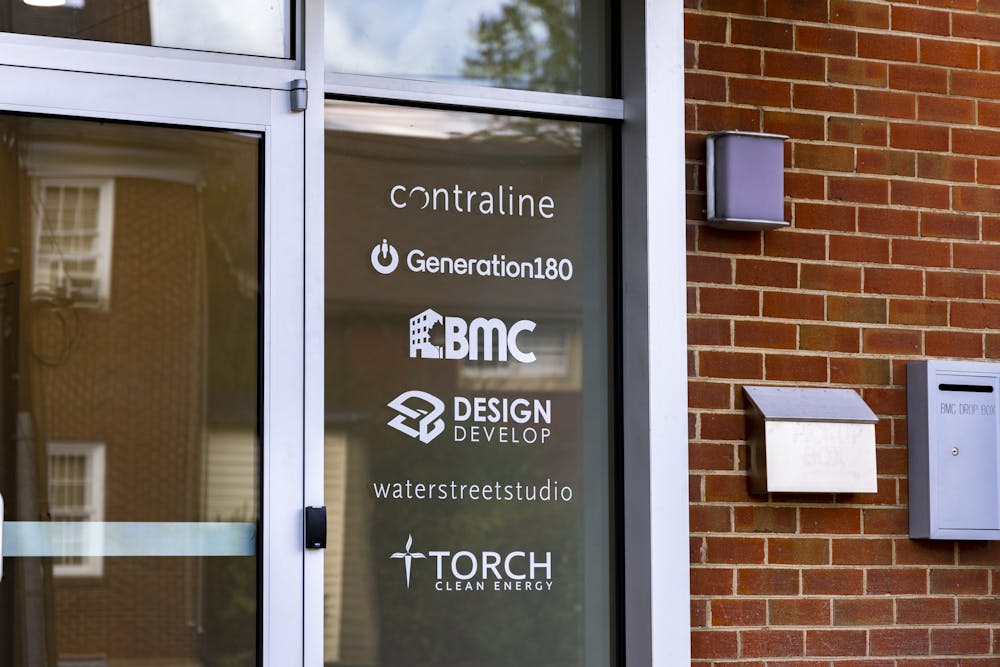After winning the 2015 U.Va. Entrepreneurship Cup — an annual competition that awards seed money to entrepreneurial ideas — with his idea for Contraline, Kevin Eisenfrats, chief executive officer, co-founder and Class of 2015 alumnus, has put the idea into action. Now, his company is running clinical trials on the new form of male contraception.
Contraline was built and founded in Charlottesville. Even as the company begins to garner national attention eight years later, operations continue in the same city — the company has also built a relationship with the University, collaborating with several professors in the Biomedical Engineering Department and urologists at the School of Medicine. More than 30 University students have interned at Contraline.
“I actually kind of fell in love with the ecosystem [in Charlottesville],” Eisenfrats said. “I think it's young, energetic and very collaborative.”
The company, which was originally centered on humane pet contraception, quickly shifted its focus to human contraceptives as Eisenfrats realized that there needs to be more appealing and effective contraceptive options for men.
“[Options] need to be reversible,” Eisenfrats said. “They need to be safe and appealing. Then, our bigger aim is to really reduce some of the burden that women have to go through as being the main users of birth control.”
ADAM — the company’s own non-hormonal hydrogel technology — was recently implanted in 25 men as part of an ongoing trial based in Australia. Both the efficacy and safety of the product are continually being monitored as a part of these trials.
Eisenfrats said there’s a greater need for men to take contraceptive responsibility because it’s unclear what the future of reproductive health will look like in America after the overturning of Roe V. Wade. In June 2022, the Supreme Court ruled in Dobbs v. Jackson Women’s Health Organization to overturn the constitutional right to abortion.
Federal law no longer guarantees abortion rights, meaning legality is decided by individual states. In the state of Virginia, abortion is currently legal before the third trimester unless specific cases of medical complications or emergencies arise.
“I hope contraception is one of those product areas that's not touched [by law], but if it is, we need to be able to provide better and newer options and talk about accessibility as well,” Eisenfrats said. “I think that that's kind of the bigger context here – how do we reduce unintended pregnancies?”
Ryan Smith, an associate professor of urology at the School of Medicine and a doctor specializing in urology at U.Va. Health, has worked with Contraline since 2016. According to Smith, engineers, scientists, physicians and innovators from the University and Virginia Commonwealth University have collaborated with Contraline in contraceptive research.
Smith said faculty at the University has carried forward a long-standing collaboration between the University and Contraline in relation to its clinical research.
“[The research is] poised to benefit not only the University, but the community of Charlottesville, the Commonwealth of Virginia and beyond in terms of recruiting talented innovators to push the science of male contraception forward,” Smith said in an email statement to The Cavalier Daily.
As Contraline’s work progressed and ADAM developed, the company became the first in the past 20 years to achieve the clinical trial stage for new non-hormonal male contraceptive technology.
According to Eisenfrats, the trial had a successful implantation among its first patients and a report on its results is still developing. Though specifics are not available to the public yet, Contraline’s team has been following the trial’s progress closely.
"We have seen some incredible progress in the trial [that] I can't talk about just yet until it's published, but we've been very encouraged by what we've been seeing in the clinical trial,” Eisenfrats said.
According to Eisenfrats, Contraline is looking to bring clinical trials to the United States in coming years, with the eventual goal of seeking FDA approval. Beyond this, the company plans to continue making innovations across the broader field of reproductive health.
CORRECTION: A previous version of this article stated that Kevin Eisenfrats graduated in 2016. He actually graduated in 2015. The article has been updated to reflect this change.







